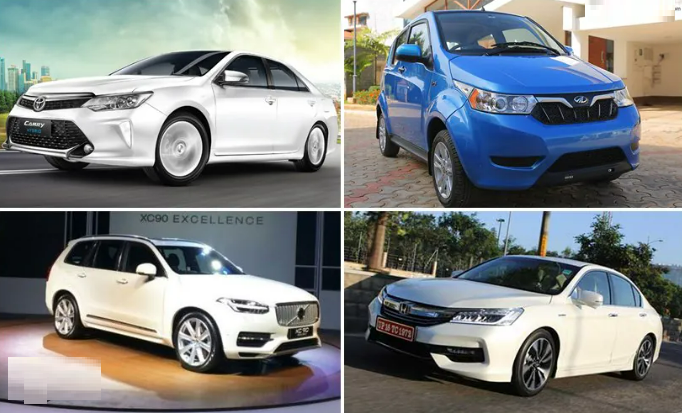Introduction: Hybrid EVs with Gas Engines – The Future of Sustainable Mobility
Hybrid EVs with gas engines have become increasingly popular in recent years, offering an innovative solution for those seeking to embrace sustainable mobility without compromising on convenience. These vehicles combine the power of electric motors and traditional gasoline engines, offering the best of both worlds. In this post, we explore whether these hybrid vehicles are the future of transportation or merely a transitional phase as we move toward fully electric cars.
Key Specifications of Hybrid EVs with Gas Engines
Hybrid electric vehicles (HEVs) with gas engines are designed to offer the best of both worlds: electric power and gasoline efficiency. Here are the specifications that make these vehicles stand out:
- Powertrain:
Hybrid EVs with gas engines combine a gasoline engine with an electric motor to optimize performance. The electric motor powers the vehicle during lower-speed driving, while the gas engine kicks in at higher speeds or when the battery is low. This creates a more efficient, seamless driving experience. - Fuel Efficiency:
Hybrid EVs offer impressive fuel efficiency, with many models achieving upwards of 50 mpg. By combining electric power for city driving and gasoline for long-range trips, these vehicles deliver substantial savings in fuel consumption. - Battery and Charging:
The battery in hybrid EVs is typically smaller than that in pure electric vehicles, and it doesn’t need to be plugged in. Instead, the battery recharges through regenerative braking and the gasoline engine, making them extremely convenient for those who don’t want to worry about charging stations. - Emissions:
Hybrid EVs produce lower emissions compared to conventional gasoline vehicles. While not zero-emission like fully electric vehicles, they significantly reduce air pollution and are an eco-friendly option for daily commutes.
Top Features of Hybrid EVs with Gas Engines
Here are the top features that make hybrid EVs with gas engines an exciting option for modern drivers:
- Dual Power System:
Hybrid EVs use both the electric motor and gas engine to offer a seamless transition between power sources. This ensures maximum efficiency and optimal performance. - Extended Driving Range:
Unlike electric-only vehicles, hybrid EVs offer an extended driving range. With a full tank of gas and a charged battery, many hybrids can travel over 500 miles without needing to stop for fuel or a recharge. - Fuel-Efficient Performance:
These vehicles consume less fuel in urban settings, as the electric motor is utilized in stop-and-go traffic, and the gasoline engine kicks in for highway driving, offering significant fuel savings. - Regenerative Braking:
Hybrid EVs use regenerative braking to capture energy during braking and recharge the battery. This technology helps improve energy efficiency and reduce wear on the brake pads. - Reduced Environmental Impact:
Although they still use gasoline, hybrid EVs produce fewer pollutants compared to conventional gas-powered vehicles, making them a greener choice for environmentally-conscious drivers.
Are Hybrid EVs with Gas Engines the Future of Transportation?
The answer isn’t clear-cut, but hybrid EVs with gas engines certainly play a significant role in the current and future landscape of transportation. While fully electric vehicles are becoming more popular, hybrids offer a practical solution for drivers looking to reduce their carbon footprint without completely giving up on the convenience of a gasoline engine.
In areas where charging infrastructure is still lacking, hybrid EVs with gas engines offer a convenient and eco-friendly alternative. They allow drivers to enjoy the benefits of electric power in urban areas, while still having access to gasoline power for longer trips.
As battery technology improves and electric vehicle charging networks expand, hybrid vehicles may transition to fully electric alternatives, but for now, hybrids offer a well-rounded option for the average driver.
Why Hybrid EVs with Gas Engines Might Be Here to Stay
- Flexibility and Convenience:
Hybrid EVs give drivers the option to use electric power for daily commutes and gasoline engines for longer road trips, providing the flexibility needed for modern lifestyles. - Lower Entry Cost:
For many consumers, hybrid EVs are a more affordable option compared to fully electric vehicles. They don’t require the infrastructure of charging stations and are generally cheaper upfront than their all-electric counterparts. - Fuel Savings and Incentives:
With fuel savings, tax incentives, and fewer emissions, hybrid EVs are a cost-effective and environmentally-friendly choice. Many governments offer rebates and tax credits for eco-friendly vehicles, further reducing the initial investment.
FAQs About Hybrid EVs with Gas Engines
1. What is the difference between hybrid and plug-in hybrid vehicles?
Hybrid EVs don’t need to be plugged in, as the electric motor is recharged by the gasoline engine and regenerative braking. Plug-in hybrids, on the other hand, can be plugged into a power source to charge their battery.
2. Are hybrid EVs more fuel-efficient than traditional gas vehicles?
Yes, hybrid EVs are more fuel-efficient than conventional gas-powered vehicles. They use electricity for city driving, reducing the need for gasoline, which saves on fuel costs.
3. Are hybrid EVs good for the environment?
While hybrid EVs still use gasoline, they emit fewer pollutants than traditional vehicles, making them a greener option. However, fully electric vehicles are more eco-friendly as they produce zero emissions.
4. Do hybrid EVs require regular maintenance?
Hybrid EVs require less maintenance than traditional gas-powered cars, but they still need routine checks on the engine, brakes, and battery system to keep everything running smoothly.
5. How long do hybrid EV batteries last?
Hybrid EV batteries typically last 8-10 years or more, depending on usage and climate. Many automakers offer warranties for hybrid batteries to ensure long-term reliability.

